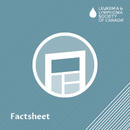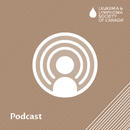Resource Library
Showing 21 to 30 of 333 results
This worksheet provides caregivers with a pain scale log to keep track of their loved one's pain level, time and date during blood cancer treatment.
This worksheet provides a pain scale log for you to keep track of pain level, time and date when you're in treatment for a blood cancer.
This animated video is designed to help children, and their parents, understand what a stem cell transplant is if they need it for their blood cancer treatment.
You've lost a loved one to a blood cancer; this factsheet will help you learn what grief is and why it's important, various responses to grief, types of grief, and how to cope.
Jeff Chow is an ALL (Acute Lymphocytic Leukemia) survivor who was diagnosed when he was 15 years old. He shares his story of receiving a cancer diagnosis as a teenager, and the support that he received during his experience.
Dr. Florian Kuchenbauer explains the basics of AML diagnosis, treatment, side effects, and research.
Al Collings talks about living with CML and how it has brought new meaning to his life.
Mrs. Linda August talks about her experience with Lymphoma and how she learned the importance of taking an active part in her care and treatments.
Tiffany Woodworth shares her story of receiving a Hodgkin lymphoma diagnosis as a young adult, and the supports that she received during her experience.
Dr. Jacqueline Costello talks about the basics of Diffuse large B-cell lymphoma (DLBCL), diagnosis, treatment, side effects, and research for DLBCL.



